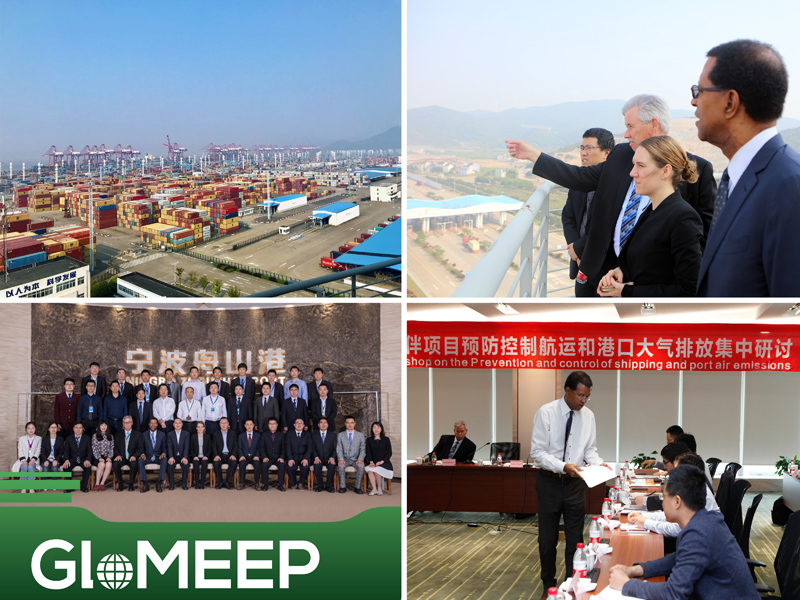Assessing emissions in ports can help countries to devise strategies to address those emissions, leading to better air quality for local populations. The first national workshop on the prevention and control of shipping and port air emissions has been held in Ningbo, China (23-25 April), under the auspices of the IMO-executed GloMEEP energy efficiency project. China is the first country to benefit from the rollout of the three-day workshop package which was recently developed by GloMEEP, in collaboration with the International Association of Ports and Harbors (IAPH). The training package aims to support countries in the quantification of emission in ports through the development of port emissions assessments (both ocean and landbased, including emissions from cargo handling equipment, trucks, rail etc.) and providing guidance on how to develop strategies for port emission reduction.
Some 30 participants from China’s maritime administrations and several ports attended the workshop, which included a practical visit to the Port of Ningbo Zhoushan, the world’s busiest port in terms of total cargo turnover. The workshop was hosted by the Ningbo Maritime Safety Administration and the Ningbo Zhoushan Port and delivered by IMO’s Astrid Dispert alongside port emission consultants.
Experts from the Port of Los Angeles, Port of Long Beach and the Starcrest Consultancy Group are supporting implementation of a series of GloMEEP port workshops, which are designed for port personnel and aim to increase their awareness about ship and port air emissions and show how, through the implementation of tailor-made port emission reduction strategies, air quality in ports can greatly be improved.
